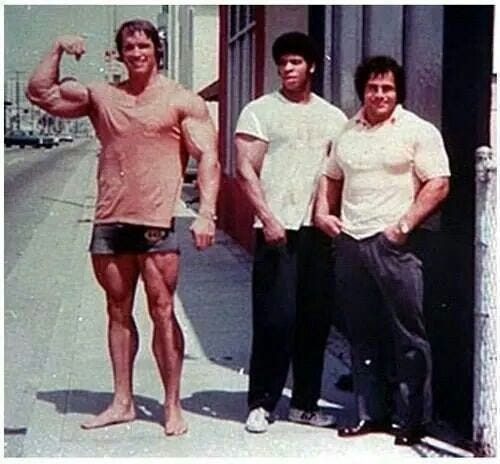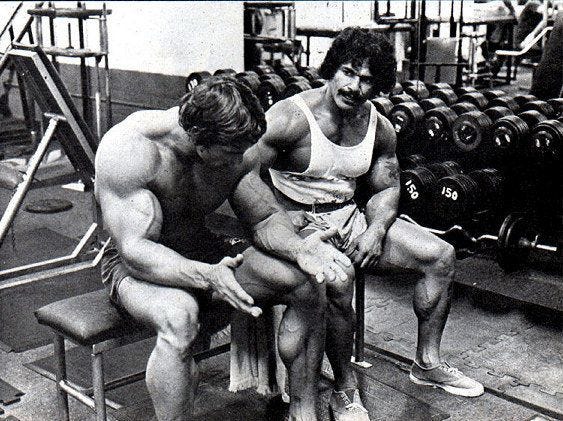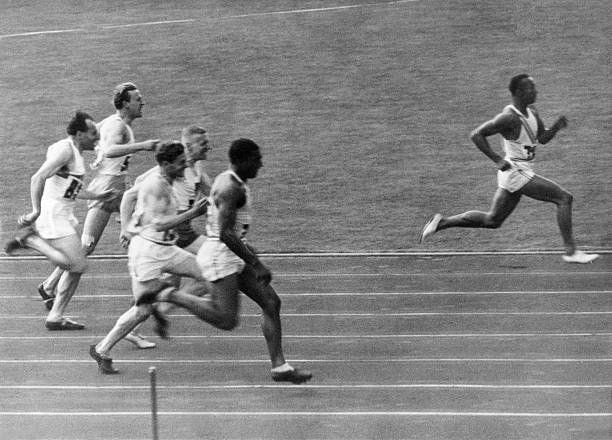Write & Lift is an ethos of personal and spiritual development through conscious physical exertion and practice of the writing craft. Through this effort to strengthen our bodies and minds we become anti-fragile and self-respecting sovereign individuals. Through this effort we may stand against untruth and evil and create a new culture of vitality, strength, and virtue.
If this is your first time reading, subscribe here.
One quick thing:
The seventh Write & Lift Book Club Podcast is live. Last week I had the pleasure of speaking with Arthur Dayne from Blood & Rain; a martial artist, strenght athlete, writer, and Orthodox Christian. You can listen to the episode here or anywhere else you get your podcasts.
Why I Trust Gym Bros
We live in a low trust society.
Our institutions are weak, mismanaged, and corrupt. We’re closely monitored by our government and technocrat elite. Civic engagement is at an all time low. Cities overflow with state subsidized schizophrenics. Your neighbor fly’s a different flag over their porch. They haven’t said anything, but you can tell exactly how they feel about you.
It takes awareness to build trust. Who are you giving your time to? How do we know who will embody the values and traits you admire? Who should we elevate in our society?
Since we can’t read someone’s mind, we have to rely on a different heuristic.
Reading peoples bodies.
In my estimation, our disintegration into a low-trust society has been caused by two broad cultural trends.
First, our worldviews, perspectives, and philosophies have gradually moved toward irreconcilable ends of the bell-curve. My great-grandparents supported different political parties. My great-grandpa, a registered Republican. My great-grandma, a registered Democrat. Despite differing political opinions, they had a lasting marriage. This would be unheard of today.
On a macro scale, rather than working together to support the needs of the populace, both ends of this spectrum focus their attention on pissing over the fence at their enemies. Institutions decay and needed change never comes.
Second, the unspoken rules and codes of conduct that bound us together — regardless of our political differences — don’t exist anymore. Even the idea that “hard work” is rewarded in the market elicit eye-rolls from many young people. If you’re a small business owner, you can’t trust that a young employee will even show up to the job.
Instead of walking a mental balance beam and passing judgement on who I think deserves my trust and attention, I ask myself one question.
“Does this person look healthy?”
If the answer is yes: well-groomed, dressed properly, fit, high-energy, I can assume that they share the values and qualities that I associate with living a powerful and meaningful life.
If they are slovenly, obese, addicted, and low-energy, I can assume that this person is not someone worth my time, attention, or cooperation.
And guess what? I’m always right. This simple heuristic has had a massive impact on my life.
As a younger man I worked as a touring musician and later as a journalist. I spent time around people with terrible habits and zero health awareness. We’d have late night conversations; cook up some big new business or project idea, and then, when I’d start to lay the foundation and do the work, they’d back out or give 10%.
It wasn’t my luck or work ethic that doomed these ideas. It was the people I was choosing to allow into my life.
In hindsight, it’s clear why they failed. How can you expect to do the work and build something with someone who can’t maintain a healthy baseline? You can’t.
Nothing worth doing comes easy. Those who train regularly understand this.
It takes years to lose weight, build muscle, run farther and faster, and reach the approximate limit of your athletic potential. Those who train understand that this work never ends. It requires a mental commitment to laying one more brick each day.
We need to stop paying so much attention to the dysgenic and ugly and start looking to those whose physical form embodies strength and vitality. People tell lies about themselves all the time. You cannot lie about your body. You cannot fake results. You cannot convince someone you can run a 6-minute mile when you have a FUPA and cankles.
This is why a “physical culture” translates into all other aspects of our financial, spiritual, and social health.
It isn’t a coincidence that friends, colleagues, and acquaintances of mine who are physical healthy and prioritize training are the ones with successful businesses, thriving families, clean homes, and a spiritual rock. I have yet to meet a man or woman that is in the top 5% of health sabotaging other aspects of their life out of ignorance or spite.
I’ll leave you with this excerpt from a 1982 interview with bodybuilder Mike Mentzer
Both my moral and intellectual development have been influenced by several existential philosophers, primarily Friedrich Nietzsche, a 19th century German philosopher, poet, and critic. In line with what the existentialists teach, I believe that each individual is responsible for his or her own actions and that responsibility cannot be foisted upon some aspect of our psyche, like the id or subconscious, nor can we attribute it to the plotting of a devil or to some kind of errant impulse. We're all responsible for what we do!
I also feel that we as individuals are responsible for who we are. If we're winners, it's because we've programmed ourselves to become winners. If we're losers, in large part it's because we're programmed to feel that we're losers. I've noticed this especially among bodybuilders. There does seem to be two types: Those who really feel they deserve to win, and go on to win, and those who feel that they aren't worthy of winning and therefore rarely win.
When I talk about winning and losing, I'm not really talking about just physique contests. I'm talking about every moment of our lives. Every single moment of our lives we're faced with a decision to act responsibly and constructively or to be paralyzed and not to act.
As always, thanks for reading
-Joe









Everything ugly weakens and afflicts man. It recalls decay, danger, impotence: he actually suffers a loss of energy in its presence. The effect of the ugly can be measured with a dynamometer. Whenever a man feels in any way depressed, he senses the proximity of something ‘ugly’. His feeling of power, his will to power, his courage, his pride- they decline with the ugly, they increase with the beautiful.” - Frederich Nietzsche